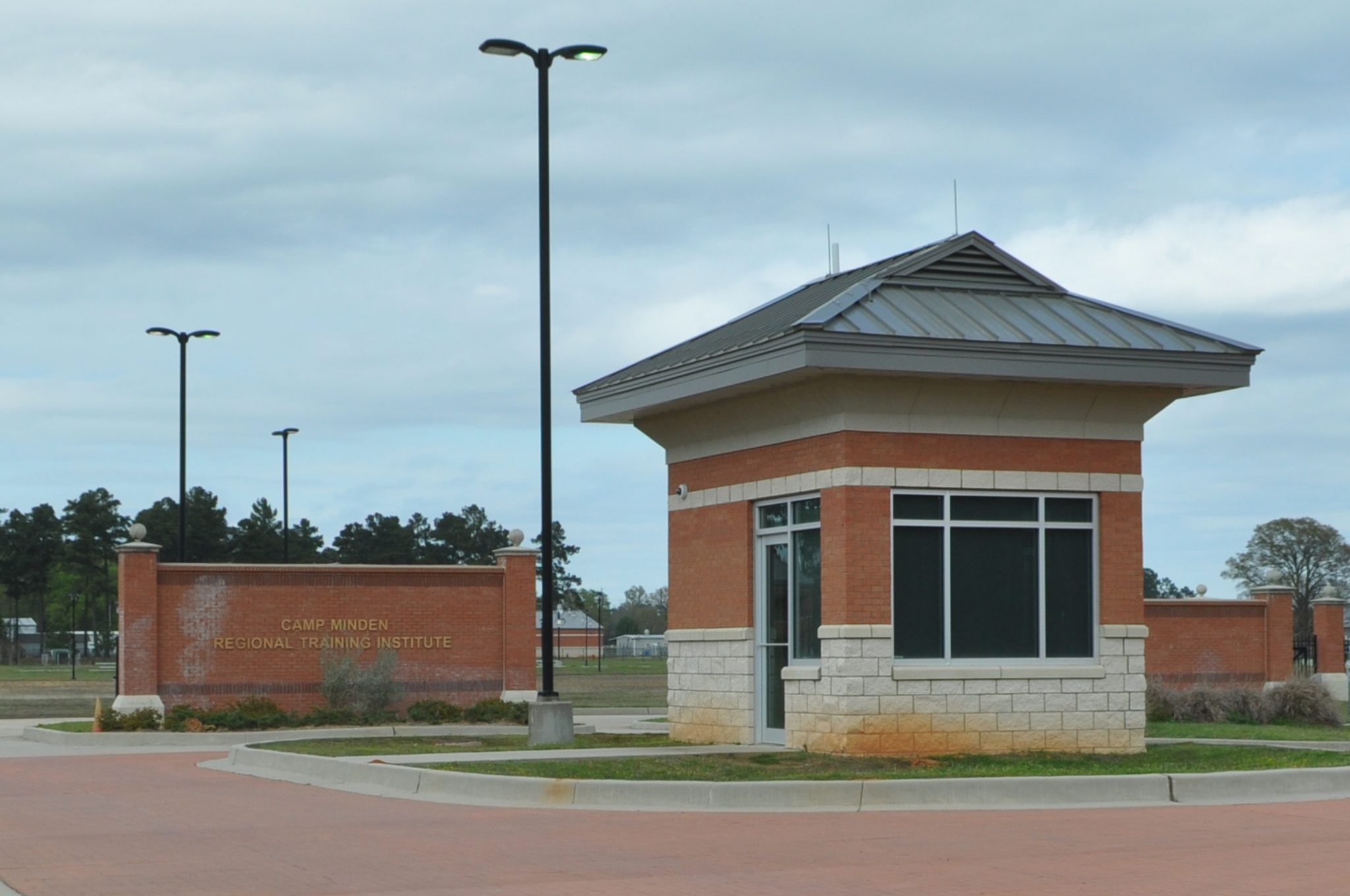CAMP MINDEN – Officials with the Louisiana National Guard hope federal funding will begin to flow back into the state to complete the next three phases of the Regional Training Institute.
With Phase I complete, Lt. Col. Brad Kendall said Department of Defense funding for the remaining three phases would finish out the $100 million project. All four phases are completely funded by DOD.
“When we went through all the budget cuts and sequestration four or five years ago, that’s when we lost the funding,” he said. “I can tell you that the National Guard leadership is working diligently to get us back on the funding plan.”

Legislators and National Guard leadership are working with Congress to try to get the project moving again, Kendall said.
Currently, the RTI has the capacity to train 172 soldiers at a time. One dormitory and one classroom building are complete, along with the dining facility.
Upon completion, the RTI will have the capacity for 538 soldiers per class cycle.
During Phase I of the project, the infrastructure (water, plumbing, electric lines) and the central plant building (heating and air conditioning) were constructed. The dining facility, one classroom building and one dormitory were completed. The first phase cost $23.8 million to construct. A remaining $77.2 million is needed to complete phases 2-4.
Phase II will include the addition of two administration buildings and two more dormitories.
“Each phase builds on what we already have,” he said. “Each phase adds more classrooms, more dormitories and more administrative areas. The reason they’ve done that is so that we’re able to function. We’re operational now, but we’ll be able to function at a larger capacity after each phase.”
Phases III and IV will complete the RTI, with 273,000 square feet of building space on 80 acres, including a motor pool and physical training fields.
Soldiers are trained in engineering, military truck driving, heavy equipment operation and military police. The carpentry/masonry engineering and heavy equipment engineering is on the West Campus, he said, which is about 100 acres dedicated to training on the northwest corner of the military installation.
The economic impact would be in the millions of dollars, Kendall said. Based on numbers from a 2009 study, the economic impact would be about $25 million — $9.5 million in tax revenue over a 10-year period, $12 million in the purchase of goods and services, $5 million in operating costs and $8 million in payroll.
When asked whether Explosive Service International stayed at Camp Minden following the destruction of the M6, Kendall said they would not affect the training center.
The RTI as a whole already exists, he said, with noncommissioned officers training taking place at Camp Cook in Ball.
“It will eventually be moved up here and it increases the full-time employees at Camp Minden, residences in Webster and Bossier parishes, and the number of students coming to Camp Minden on a regular basis will increase,” Kendall said. “When that happens, this place will be pretty busy. You will always be able to come out here and see formations of troops moving from place to place, training in the training areas, and this will look more like a military base.”
The National Guard has a dual purpose: one is a federal mission to support the U.S. president, and the other is to support the Louisiana governor.
“We train as soldiers,” he said. “If the president needs us to go to Iraq, we deploy. We train to protect the citizens of Louisiana at times of hazards or a disaster response. That’s where we stand out from the other military forces. A good example, our truck drivers’ battalion is in Shreveport. Their mission is to train to be truck drivers to haul and be prepared to drive in combat situations. If a hurricane hits Louisiana, they are trained to do pretty much the same job, but they haul commodities and get them out to the people in need. So they are using their skills in the state mission, and it’s probably one of the most important state missions we have. It’s huge.”

